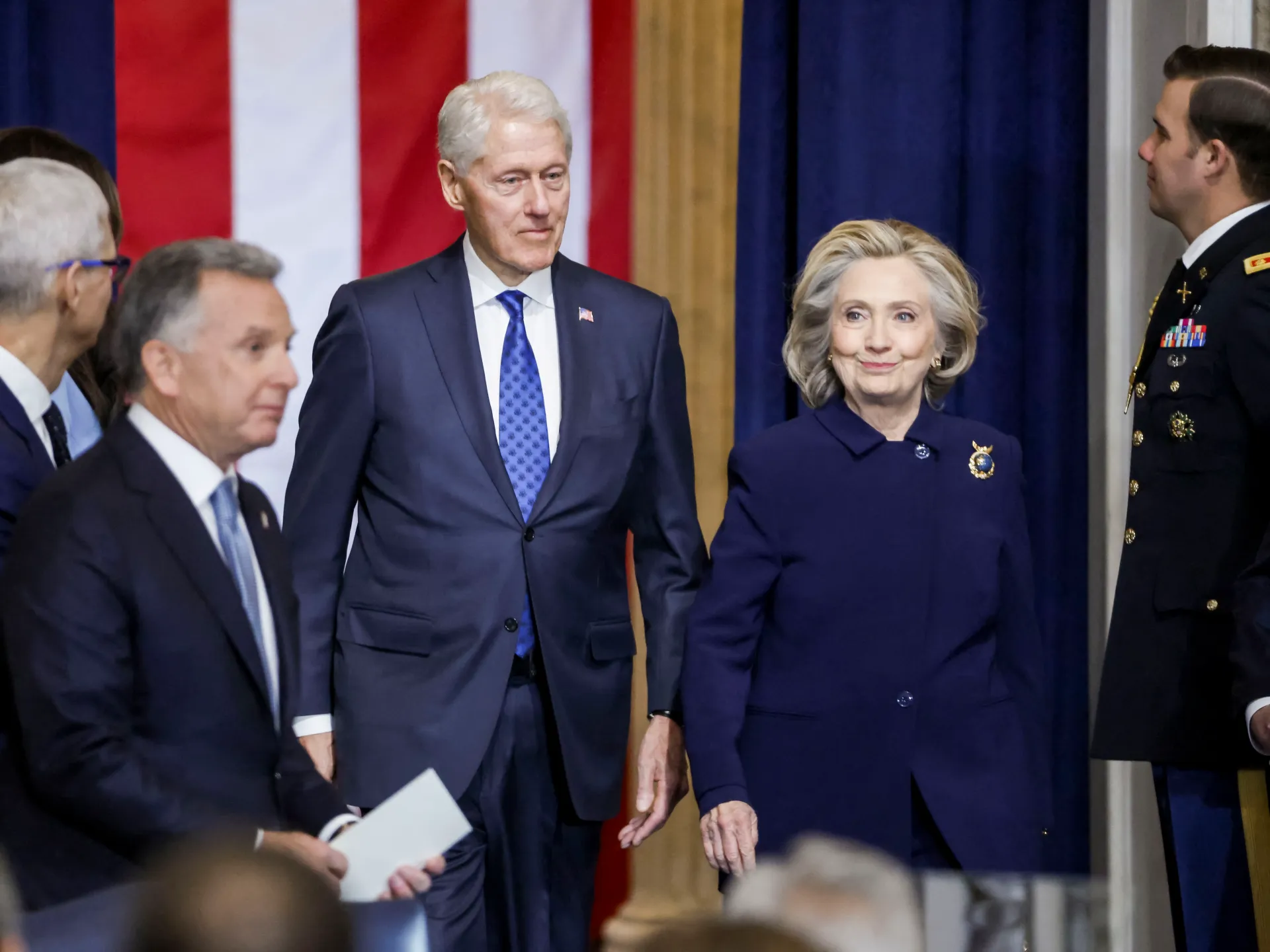Clintons reject US Congress subpoena to testify in Epstein investigation | Donald Trump News
Former United States president and former secretary of state accuse Republicans of seeking to ‘harass and embarrass’ with probe.
Published On 13 Jan 2026
Former United States President Bill Clinton and former US Secretary of State Hillary Clinton have refused a congressional subpoena to testify before a House of Representatives committee as part of an investigation into multi-millionaire financier and convicted sex offender Jeffrey Epstein.
In a letter on Tuesday, the Clintons accused Republican Representative James Comer of playing political favourites in the investigation, seeking to punish political opponents like them, while shielding allies, including US President Donald Trump.
Recommended Stories
list of 3 itemsend of list
The Clintons called the subpoena “legally invalid”, adding the investigation by a committee chaired by Comer was “literally designed to result in our imprisonment”.
“We will forcefully defend ourselves,” wrote the couple.
In response, Comer said he will begin contempt of US Congress proceedings against the Clintons, who are Democrats, next week.
The lengthy process would eventually require approval from a full vote of the House. If that were to pass, the Clintons could be prosecuted by the Department of Justice.
“No one’s accusing the Clintons of any wrongdoing,” Comer told reporters on Tuesday. “We just have questions.”
In their letter, the Clintons contended they had already provided all the relevant information they had to the committee, leading them to conclude the subpoena to appear in person was only meant to “harrass and embarrass”.
“We have tried to give you the little information we have. We’ve done so because Mr Epstein’s crimes were horrific,” the Clintons wrote.
Epstein committed suicide in 2019 as he awaited trial on sex trafficking and conspiracy charges, but speculation has continued to grow over the influential people in the multi-millionaire’s social orbit.
Both Bill Clinton and Trump had documented friendships with Epstein, but have denied knowledge that he trafficked underage girls.
Last year, Congress passed a law requiring the Department of Justice to release all the files related to its investigation into Epstein, but the agency has to date only released a small fraction.
Critics have accused the department of prioritising the release of documents related to Clinton to draw attention away from Trump.
In a letter last week, two lawmakers, Democrat Ro Khanna and Republican Thomas Massie, requested that a federal judge appoint a neutral expert to oversee the release of the files.
The pair said they had “urgent and grave concerns” that the Justice Department had failed to comply with the law. They added that they believed that “criminal violations have taken place” in the release process.
